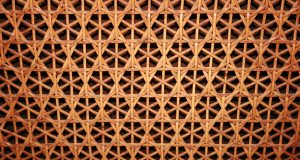When recruiting undergraduates, the head of fine art at Newcastle University sees elite arts schools as among his chief rivals, rather than other Russell Group universities.
What Newcastle offers is a school devoted solely to fine art in the heart of a vibrant city campus. About 600 candidates apply for 65 places each year on its fine art degree, which is over four years, as was traditional in art schools, rather than three, and includes art history as part of the course.
Of these, a third are invited for interview, and while candidates are expected to meet the university’s minimum A-level entry requirements, offers are often based on their art portfolios. Those who do get in like what they find — 92.5 per cent of final-year undergraduates rated the quality of teaching highly, helping to push Newcastle to the top of the art and design subject table for the first time.
They are taught by practising artists in a range of disciplines. Academic staff include Wolfgang Weileder, professor of contemporary sculpture, and Kelly Richardson, who specialises in video-installation art. “What we are offering is a solid intellectual grounding in all things connected to contemporary art and how that sits against a historical background,” says Richard Talbot, head of fine art. “In terms of ethos, we are creating an intellectual environment where we want the students to feel that anything is possible, where students feel supported but also question and try things out.”
Most students aspire to become artists but some want to teach, become curators or work in art therapy. Luke Robson, 22, in the final year of his fine-art course, plans a 360-degree video installation for his final exhibition piece. Unusually, his ambition when he applied was not to be an artist but a film director, inspired by Steve McQueen and Sam Taylor-Johnson. “I chose it because it is the broadest creative subject you can study,” he says. “It starts in a traditional way with sessions of teaching. By the third year, those are few and far between because you want to explore what interests you.”
Luke joined a theatre society and began making sets for productions at professional venues in Newcastle, which developed into a freelance business. He is now working on a set for an opera in London, which compliments and supports his studies.



